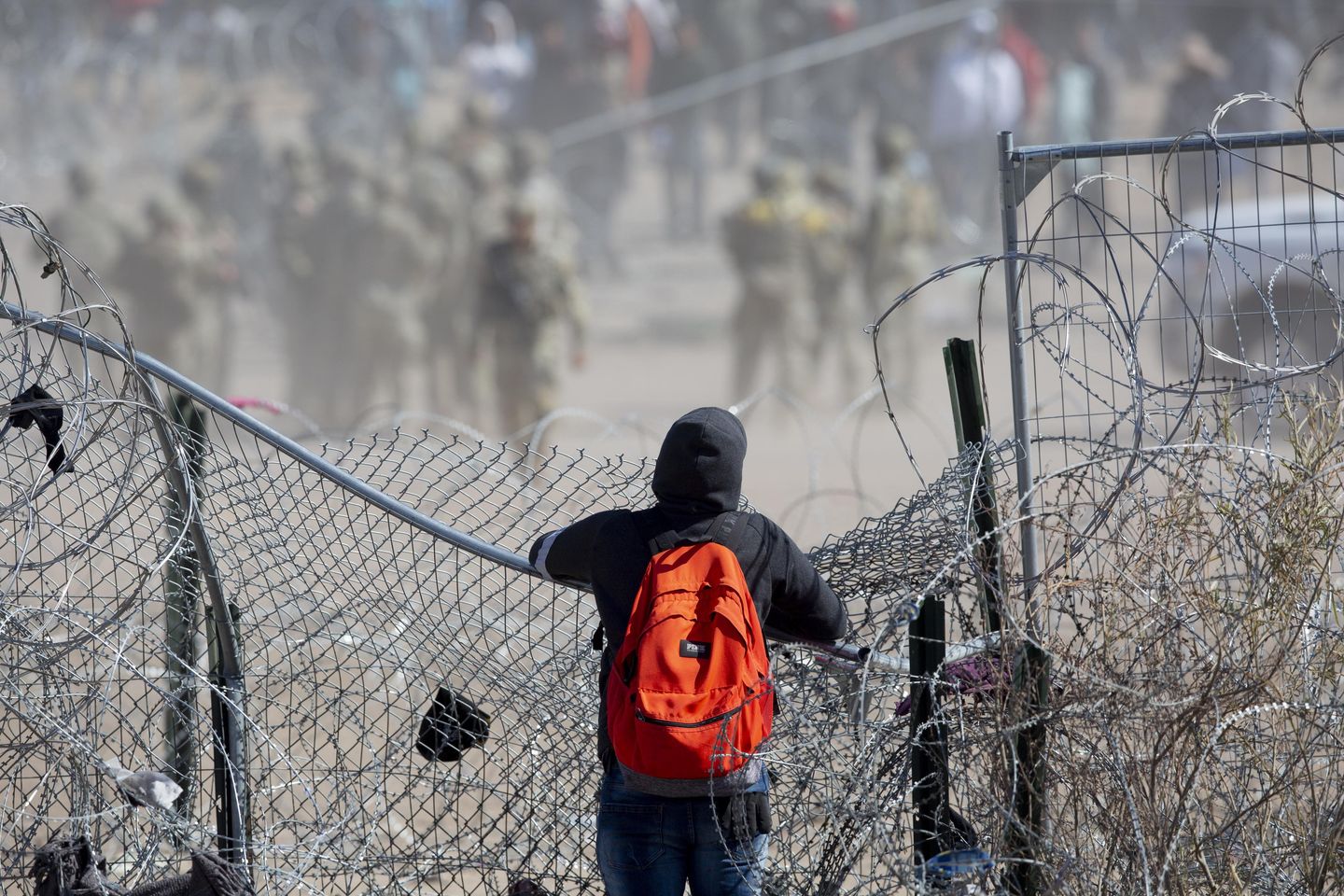
A federal appeals court renewed an injunction Wednesday blocking Texas’ tough new immigration law, delivering a significant victory to immigrant-rights advocates and President Biden.
The 5th U.S. Circuit Court of Appeals ruled 2-1 that the law is likely to be found unconstitutional and therefore cannot go into effect while the legal challenges are ongoing.
Chief Judge Priscilla Richman said the Constitution gives the federal government almost exclusive control over immigration policy and Texas’ attempt to create state penalties, including a deportation system, for illegal immigrants tramples all over that power.
Judge Richman specifically rejected Texas Gov. Greg Abbott’s claim that the surge of illegal immigrants is an “invasion” that triggers a section of the Constitution granting states broad powers to wage war independent of the federal government.
Mr. Abbott had said the new law, known as SB4, was necessary because the federal government has refused to carry out its responsibility to enforce immigration laws, leaving the state with massive new burdens as it tries to prevent illegal immigration and absorb the costs of providing services to those who do make it through.
But Judge Richman said the Constitution allows no such escape clause.
“Texas, nobly and admirably some would say, seeks to fill at least partially the gaping void. But it is unlikely that Texas can step into the shoes of the national sovereign under our Constitution and laws,” she wrote.
SB4 creates state-level penalties for entering the country illegally, with both a criminal punishment and a type of deportation as options for state judges. The criminal penalties were written to match federal law, with a misdemeanor for a first offense and a felony for repeat offenders.
The law also allows a judge to order deportation, which would mean state authorities take a migrant back to the border.
The state says it’s aimed at recent arrivals and is intended to give the state the power to enforce laws where the federal government won’t.
State officials have said they expect 80,000 arrests a year under the law.
The law drew intense interest from all sides, with GOP-led states weighing in to back Texas’ claims of the right to act independently, and Mexico filing its own brief warning that the law would severely damage international relations.
Mexico had even said it would not cooperate in taking back anyone purporting to be deported under the Texas law.
SB4 has already had a Byzantine legal history.
The law was put on hold earlier this year by a district judge, then that was reversed by a different panel of the 5th Circuit. The Supreme Court then blocked it again, then days later released that blockade. Hours later Judge Richman’s panel of the 5th Circuit issued a new tentative hold, and Wednesday’s ruling put a more persistent hold on it.
All told, the law was technically in effect for just hours.
Judge Andrew S. Oldham dissented from Wednesday’s ruling, saying it is too early to conclude that Texas’ law is likely unconstitutional in every aspect.
Since the law has never really been in effect, he said there’s no way to know whether it would have conflicted with the federal government in practice.
He said the court’s new injunction is a shame because Texas should have the ability to experiment with solutions to the border chaos.
“The people of Texas are entitled to the benefit of state law right up to the point where any particular application of it offends the Supremacy Clause,” he wrote. “And Texas state officials should be trusted at least to try sorting those constitutional applications from any potentially unconstitutional ones. That is the way federalism is supposed to work.”
He said he would have allowed the law to take effect and then see what conflicts arose.












